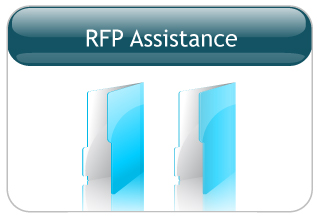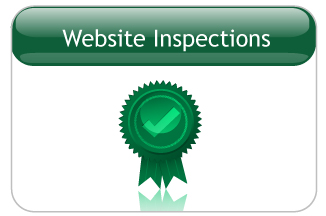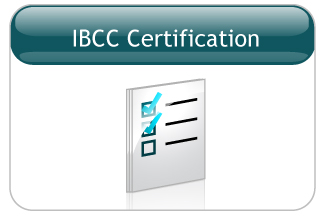As more and more people have access to the Internet, increasing numbers of website design companies are popping up. The opportunity to open a web design company is huge because the demand for new websites is only increasing each year. Additionally, low cost software has made it even easier for novices to break into the field.
Unfortunately, for business owners seeking help with their websites, it's a difficult task to determine the good from the bad. So here are 3 Rules for Hiring a Competent Web Development Firm.
1. Do your homework.
With the use of a few great websites, you can spy on the companies that you're considering hiring and see if they're worth their salt. Alexa.com is one of the top sites used to determine if a site is getting traffic or not. After all, if the web design company that you're considering, isn't getting traffic to their own site, how can they do it for yours? So, first visit Alexa.com and you can enter the address of the website design company that you're checking on. Odds are that the site isn't one of the top 100,000 sites so it will likely not have any data displayed on the graph. That's okay. Scroll right on down the page and look at the three boxes below the missing graph. These boxes will tell you the Alexa rank and how well the site is performing. Here's how to read the numbers. The most popular sites have low numbers. Yahoo!, the most-visited site on the Web has the coveted Alexa ranking of #1. Google is #2. MSN is #3 and YouTube is #4. Basically, the first million sites are getting 99% of the traffic on the Internet. That means that the other 60,000,000 or so sites are lost in cyberspace, getting virtually no traffic.
So back to the site you're spying on. What's their Alexa.com ranking? Is it a low number like 120,230 or is it something like 39,467,945? Or worse yet, if the site says, "No Rank" that means the site you're looking at isn't even in the top 40 million.
2. Ask the right questions.
When you're interviewing different companies, be sure to ask the tough questions just as you would if you were hiring a contractor to work on your house.
Do they require you to pay a significant amount up front? It's common to require a down payment, but if you're feeling uneasy, negotiate and ask that payments be made as benchmarks are achieved. Or better yet, do they have a money-back guarantee?
Do they have experience with projects like yours? Ask to see examples and call references so see if the company followed through on everything?
Is their proposal very detailed or is it vague? Generally this is a red flag. If the proposal is vague and doesn't offer specifics, don't assume that you'll be getting anything more than a project that pays little attention to details.
How long have they been in business? Generally, companies that have been around for 10 years or more must be doing something right. If not, they wouldn't be able to stay open.
While just being around for a long time, doesn't guarantee high quality, it can help to eliminate a lot of the fly-by-night operations and the novices who are learning as they go.
3. Know what to avoid.
These days, knowing what you won't get is just as important as knowing what you will get. In fact, SEO malpractice is so common that it's vital that you know which tactics your web development company will intentionally avoid. Naïve, newbies oftentimes engage in the latest trendy tactics that are designed to rapidly elevate their clients' sites in the search engine rankings. However, these tactics, which are frowned upon, by Google and other major search engines can be very detrimental to your site's ranking. In fact, sites that utilize these "black hat" techniques are often delisted from Google. Unsuspecting companies who have hired these negligent designers become the victims of SEO malpractice.
Some things to avoid include: keyword stuffing, linking to bad neighborhoods, doorway pages, and cloaking. All of those things are the blatantly obvious tactics that designers use to cheat their way into the search results. However, many times new designers don't even realize that they are doing things that hurt their client's rankings. One of the most common mistakes that inexperienced designers make is the use of the same meta keywords on every page. The temptation to copy and paste the metatags from page to page is common despite the detrimental effects. Google has been known to penalize sites that have keywords in the metatags that don't also appear in the content of the site itself. When designers create a long string of keywords and copy them into the metatags of every page, inevitably some pages contain keywords that are not in the content on the page too. For instance, the "contact us" generally has little content other than phone and address. If that page also has metatags with tons of keywords, your site may be in jeopardy of being delisted from Google. So ask the question, "Specifically, what do you avoid when creating search-engine-friendly sites?"
If the company you're interviewing doesn't have a long list of things that they avoid, then be skeptical. Maybe they don't know what to avoid. The list of what to avoid should be nearly as long as the list of things they include.
In summary, to insure that you're hiring a competent Web developer, be sure to do your homework. Check out Alexa.com and see if the company you're interviewing is getting lots of traffic to their own site. Look for a number between 1 and 1 million. Numbers over 1 million are a red flag. Avoid those companies.
Next, ask lots of questions. Be skeptical and don't be afraid to ask the tough questions.
Finally, you need to know what you're not getting. Probe and be sure that the company you're hiring can tell you all of the things they are intentionally avoiding so you don't become the victim of SEO malpractice.
If you're facing a stack of proposals and all of the companies are looking at appear to be the same, please take advantage of the IBCC proposal assistance services. Our experts are here to assist you and help determine which proposals are likely to be the best fit for your company.





